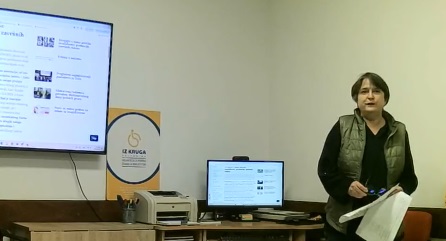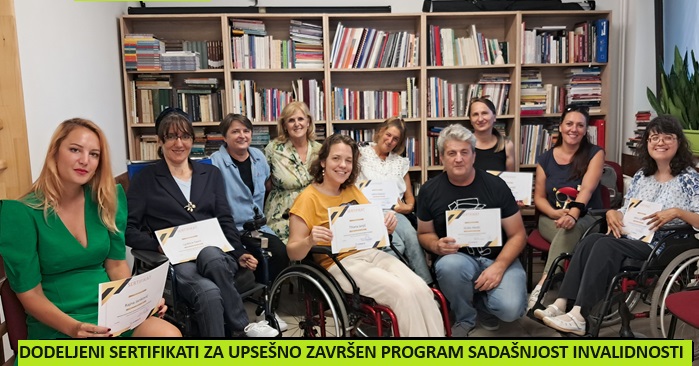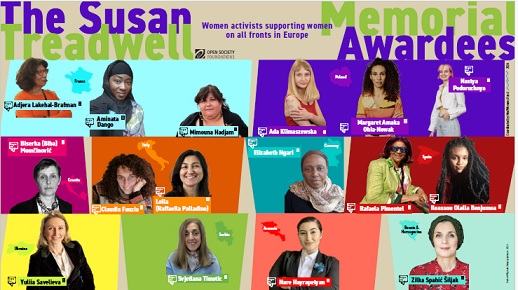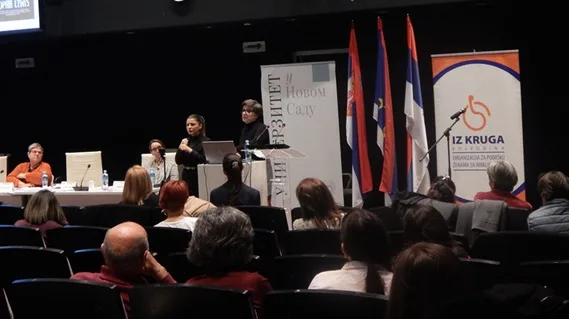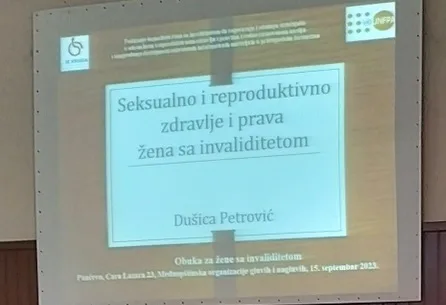As part of the third cycle of Women’s Studies in Subotica within the thematic block Marginalization of women which took place in the Modern Gallery on 27 of May 2023, Dr. Margareta Basaragin lectured about applying knowledge from feminist disability studies in education trough workshops How familiarize pupils with disabled girls. Students of Women’s Studies in Subotica followed the lecture alive and online.
How familiarize pupils with disabled girls
The aim of workshops is to connect the content of mother tongue teaching with the social context of learning about The Others, about disabled girls (women, persons). The main activity is discussion about the position of women with disabilities accompanied by reading stories from the publication Memories of Childhood: growing up of Women with Disabilities published by IZ KRUGA VOJVODINA on the occasion of International Girls’ Day in 2022.
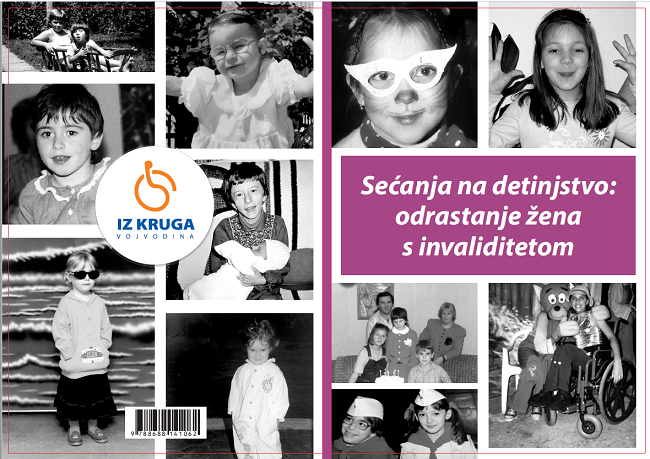
Two workshops have been realized so far. Dr. Margareta Basaragin organized the first one in Subotica in December 2022 on the occasion of the International Day of Persons with Disabilities, and the other one, Dr. Marija Tir Borlja, on 31 of March 2023, in Novi Sad. The both took place in primary school libraries in cooperation with the librarians and Serbian language teachers and total of 90 children participated, 45 in each workshop.
Before the workshop itself, the organizers needed to do preparatory actions. Firstly, they had to secure the principal’s permission, the opinion of the school’s pedagogical and psychological service about the suitability of the topic for the school environment, an agreement from homeroom teachers for the workshop to take place in their classes, an agreement from parents to use the pupil’s photographs for further promotion of the publication, and to set the time for children to gather in the school library. After that, they explained the pupils future activities and handed out printed publications, explaining that they contain twenty-one childhood memories of women with different types of disabilities that grew up in our area. They added that they would have a class in the school library in a week, where the ones that want will read parts from the publication. Some pupils started reading at once – Margareta Basaragin emphasized the interest in the activity. There are children with disabilities in both schools; in one of them, a librarian was a woman with a disability, which made the topic not only familiar but emotionally enhanced as well.
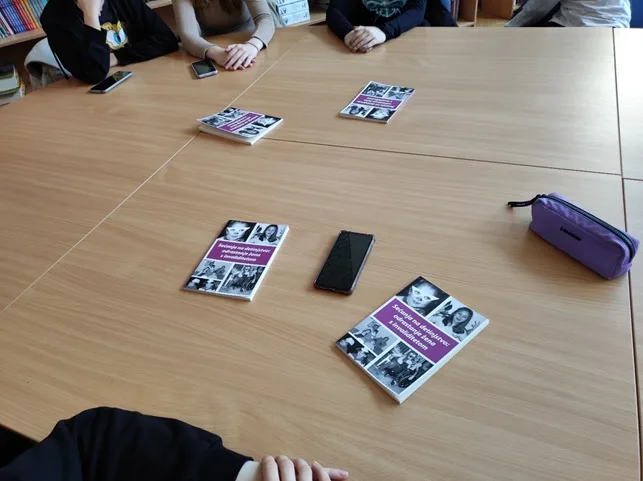
The workshop started with an introduction given by the organizers about the position of persons with disabilities who used to and still do face prejudice, discrimination, and disdain. They particularly accented that children with disabilities used to be hidden and often represented shame for their families, adding that girls were in a worse position because parents often wouldn’t let them go to school but were housebound. They also talked about a period of Nazi Germany when persons with disabilities used to be subjects of various medical experiments, just like Romani men and women, Jewish men and women, and members of other multiply discriminated groups. Next, they talked briefly about The International Day of Persons with Disabilities, why it is significant, and why we need to honor it appropriately. They emphasized that the main goal of The International Day of Persons with Disabilities is to alert the public about the unfavorable position in the society of persons with disabilities and the numerous obstacles they face in the community, but also to invite people to organize activities that might lead to positive change in the society on that particular day, but on any other day to. They named positive examples of women that were successful in fighting the stereotypes and accomplished high results: sportswoman Dejana Backo, a painter, para taekwondo champion, and an archer, and Borislava Peric Rankovic, a Paralympic table tennis player, who achieved the highest results in sport. Borislava Peric Rankovic even visited the school in Novi Sad and talked about her life and sports achievements. They ended with a conclusion that the positive change of the activity they participated in is that they would gain new knowledge about girls with disabilities and disability itself, which would enable them to add to faster and easier inclusion of persons with disabilities in the society.
After the introductory part, pupils who wanted read a story they chose from the publication followed by a discussion in which, encouraged by the content of the stories, everyone actively participated. They talked about the life stories of women that shared their memories, named examples from encounters with persons with disabilities, and about persons with disabilities in their families and communities. They talked about the conditions for studying children wheelchair users and children with different disabilities have in their schools and what can be done to make it easier for them. Pupils agreed that they had learned a lot about girls with disabilities and disability itself in the class and showed interest in reading the stories in other classrooms to familiarize more students with problems of girls with disabilities. Also, they suggested to make the workshop a part of already established activities done to improve the positions of marginalized groups such as Bottle Cap for Handicap, helping children living in the street, handball tournament for children without parental care end so forth.
Women’s Studies students in Subotica evaluated in the discussion that activities such as these are a good way for children and young people to get to know girls and women with disabilities, and that akin could be organized on the occasion of other important dates for learning about many Other and different women.
